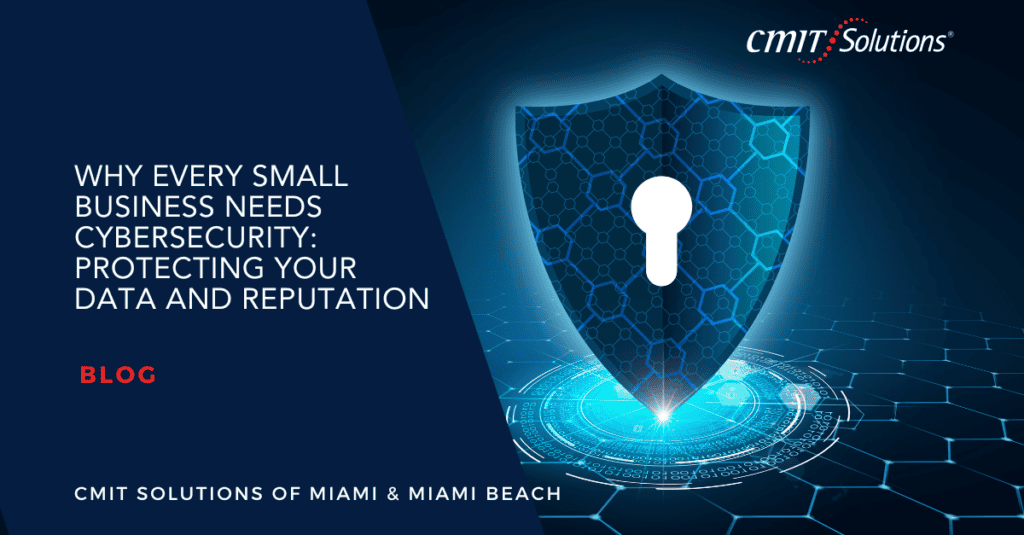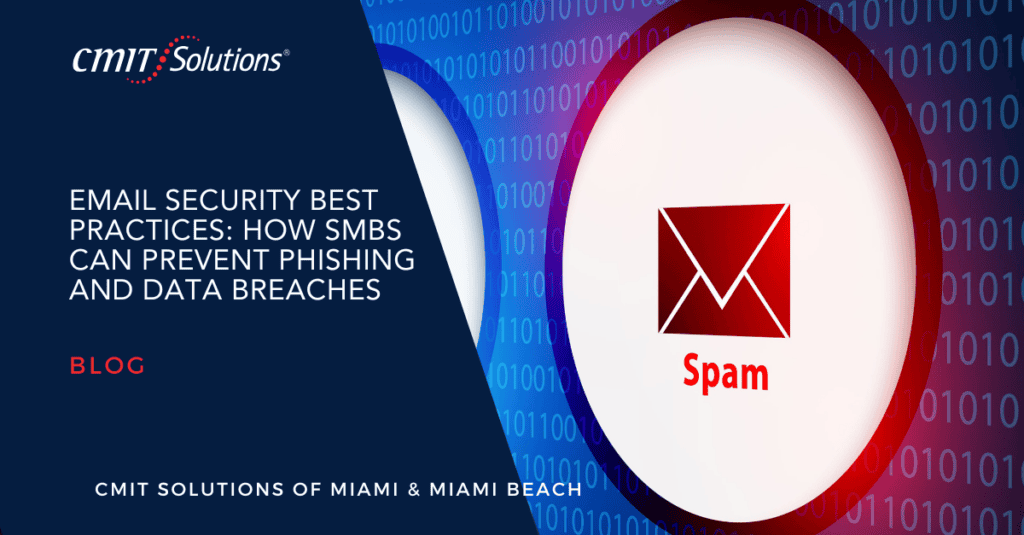As cyber threats continue to evolve, small and medium-sized businesses (SMBs) are facing an increasing number of attacks, from phishing scams and ransomware to data breaches and insider threats. Unlike large corporations with dedicated security teams, SMBs often lack the resources to combat sophisticated cybercriminals, making them prime targets.
The cost of a cyberattack goes beyond financial losses—it can lead to operational downtime, reputational damage, legal liabilities, and even business closure. To protect their digital assets, SMBs must adopt a proactive cybersecurity strategy that includes advanced threat detection, strong access controls, employee training, and managed IT security services.
Understanding the Growing Cybersecurity Risks
Cybercriminals are constantly refining their tactics, using new attack methods that exploit human vulnerabilities and outdated security measures. The most common threats facing SMBs today include:
1. Ransomware and Malware Infections
Cybercriminals use malicious software to encrypt business files, demanding payment in exchange for data restoration. Without data backup solutions, SMBs may be forced to pay hefty ransoms or lose critical information permanently.
2. Phishing and Social Engineering Attacks
Phishing emails trick employees into revealing sensitive information, such as passwords and financial details. These attacks often lead to account takeovers, fraudulent wire transfers, or unauthorized access to business systems. Strengthening email security protocols is essential for preventing phishing scams.
3. Insider Threats and Human Errors
Employees, whether intentionally or unintentionally, can pose a cybersecurity risk. Weak passwords, misconfigured security settings, and accidental data sharing can open the door for cybercriminals. IT compliance solutions help businesses establish security policies that minimize insider threats.
4. Weak Network Security and Unsecured Devices
Unprotected networks and unmanaged devices allow hackers to gain unauthorized access to business systems. Poorly secured Wi-Fi networks, outdated software, and lack of multi-factor authentication (MFA) can compromise sensitive business data. Implementing network security solutions ensures businesses maintain secure and encrypted digital environments.
Essential Cybersecurity Strategies for SMBs
SMBs can significantly reduce their risk of cyberattacks by implementing a layered security approach. Here are the most effective cybersecurity strategies:
1. Strengthen Email Security and Phishing Protection
Since most cyberattacks start with phishing emails, businesses must adopt stronger email security measures to prevent data breaches. Best practices include:
- Deploying AI-powered email filters that detect suspicious emails.
- Implementing domain authentication protocols (DMARC, SPF, DKIM) to prevent email spoofing.
- Training employees to recognize phishing attempts and avoid clicking on unknown links.
By integrating managed IT services, SMBs can receive continuous monitoring of their email systems to detect and block threats before they cause harm.
2. Implement Multi-Factor Authentication (MFA) and Access Controls
MFA adds an extra layer of security by requiring users to verify their identity using multiple credentials, such as a password and a one-time passcode. Enforcing strict access controls ensures that only authorized personnel can access sensitive business information.
- Restrict administrative privileges to reduce insider threats.
- Use role-based access controls (RBAC) to grant employees only the permissions they need.
- Regularly review and update access logs to identify unauthorized activities.
These measures, combined with IT guidance, help businesses reduce the risk of credential theft and unauthorized data access.
3. Invest in Endpoint Security and Device Management
Remote work and bring-your-own-device (BYOD) policies introduce new security risks. SMBs must ensure that laptops, mobile devices, and workstations used for business operations are protected against cyber threats.
- Deploy endpoint detection and response (EDR) solutions to monitor for malware.
- Use mobile device management (MDM) tools to enforce security policies on employee devices.
- Ensure all software and operating systems are regularly updated with the latest security patches.
Managed cybersecurity services provide 24/7 monitoring and automatic updates to prevent malware infections.
4. Secure Data with Cloud Backup and Disaster Recovery
Cyberattacks, system failures, and accidental deletions can result in permanent data loss if businesses don’t have a proper backup and disaster recovery plan. Cloud-based backup solutions ensure data remains accessible and protected.
- Use automatic cloud backups to store critical business files offsite.
- Enable data encryption to prevent unauthorized access.
- Conduct disaster recovery testing to ensure backup solutions work in real-world scenarios.
By leveraging cloud services, SMBs can secure data in a remote environment, reducing the risk of catastrophic loss.
5. Regular Cybersecurity Training for Employees
Employees are often the first line of defense against cyber threats. Cybersecurity awareness training helps prevent human errors that lead to data breaches. SMBs should:
- Educate staff on recognizing phishing scams and suspicious emails.
- Conduct simulated cyberattack drills to test response capabilities.
- Provide security awareness courses to reinforce best practices.
A well-trained workforce, combined with unified communications security, ensures safe collaboration and data sharing within the organization.
The Role of Managed IT Services in Strengthening Cybersecurity
While SMBs may not have the budget for an in-house cybersecurity team, partnering with managed IT service providers offers an affordable and effective alternative. Managed IT services provide:
- 24/7 security monitoring to detect and respond to threats.
- Regular system updates and vulnerability patching to prevent exploits.
- Compliance management solutions to meet industry security regulations.
By outsourcing cybersecurity to experts, businesses gain enterprise-grade protection without the complexity of managing IT internally.
Conclusion
The rise in cyber threats means that SMBs cannot afford to ignore cybersecurity. Without the right protections in place, businesses risk financial losses, reputational damage, and legal consequences. Implementing email security, access controls, cloud backup, and employee training significantly reduces exposure to cyberattacks.
For businesses looking to enhance their cybersecurity posture, CMIT Solutions provides tailored IT security solutions that ensure business continuity, data protection, and long-term resilience. Don’t wait until a cyberattack occurs—invest in proactive digital defenses today.




